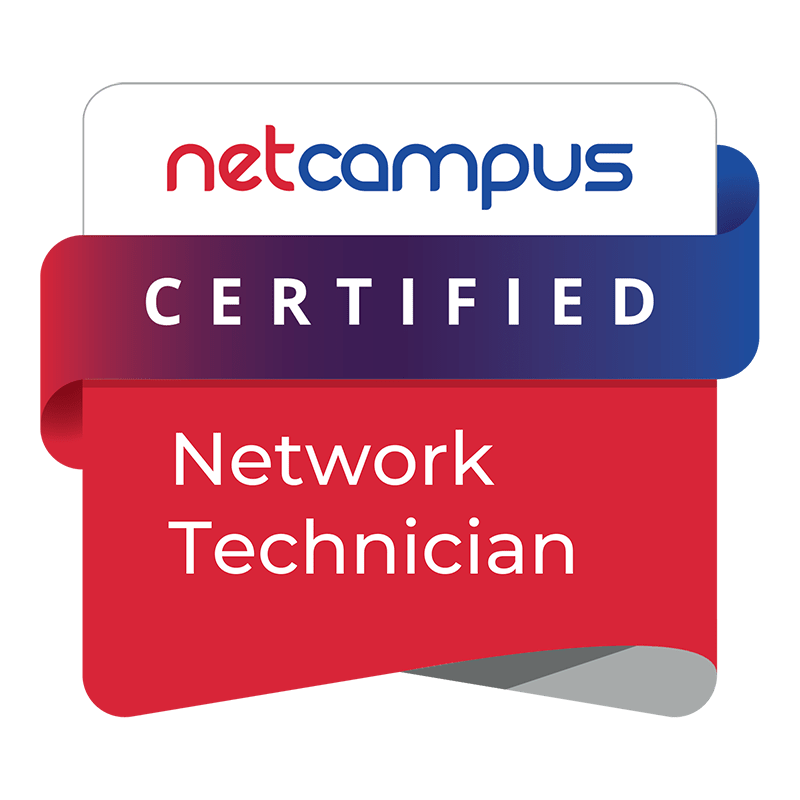Fiber Optics Technician
Master the skills required to install fiber optic cabling for indoor and outdoor network and telecommunication systems.
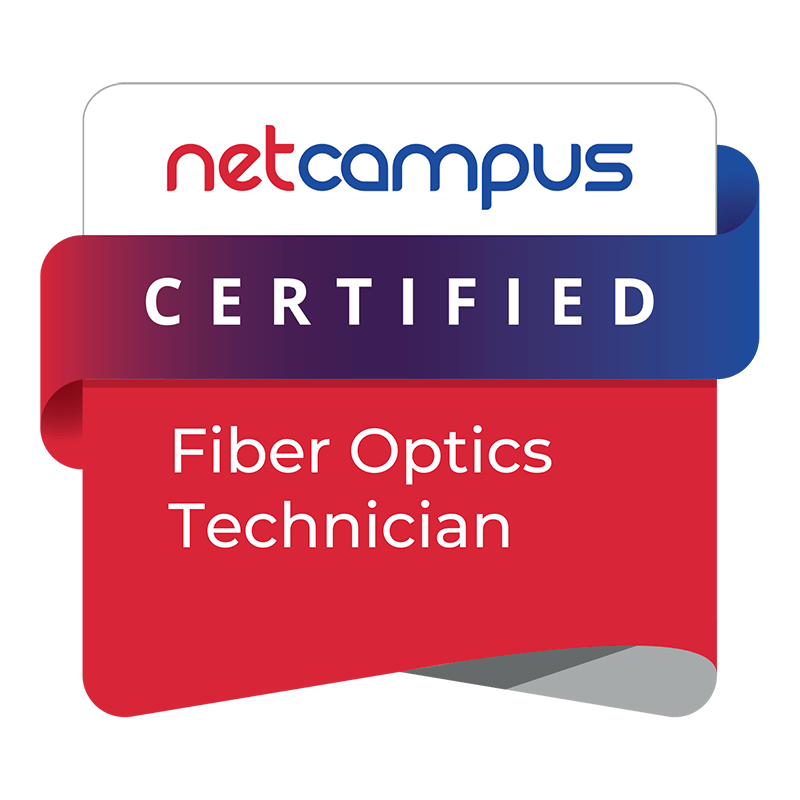
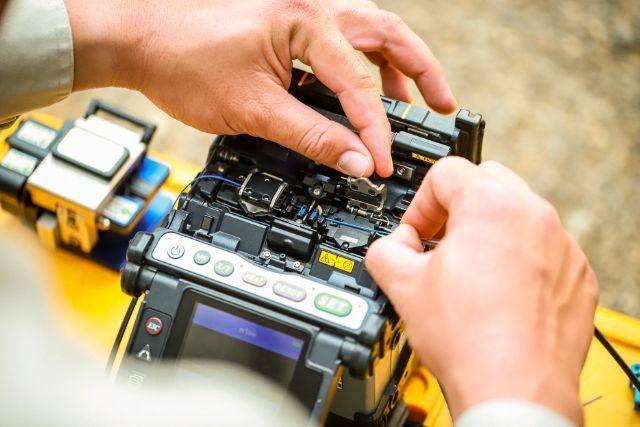
Certified Skills for Entry-Level Fiber Optics Technicians
The NetCampus Certified Fiber Optics Technician certification is designed to validate fundamental knowledge and practical skills in fiber optics installation, splicing, testing, troubleshooting, and maintenance.
This certification follows Fiber Optic Association (FOA) standards and aligns with international best practices such as TIA/EIA, ISO/IEC 11801, and ITU-T G.652/G.657.
The NetCampus Certified Fiber Optics Technician credential ensures that candidates possess the necessary expertise to work with fiber optic networks in telecommunications, data centers, industrial automation, and enterprise infrastructures.
Core Technical Skills You’ll Demonstrate
Certified individuals have proven their capabilities in the following key areas.
Understand the fundamental principles of fiber optics and transmission
Master the physics behind light transmission in fiber optics, including concepts like refraction, attenuation, and bandwidth
Identify different types of fiber optic cables, connectors, and components
Recognize and differentiate various fiber types (single-mode, multimode), connector standards (SC, LC, ST), enclosures, and transceivers.
Perform fiber optic cable handling and installation following industry best practices
Apply proper procedures for pulling, routing, labeling, and securing fiber cables in compliance with TIA/EIA and ISO/IEC standards
Conduct fusion and mechanical splicing based on international standards
Execute precise splicing techniques—both fusion and mechanical—ensuring minimal signal loss and adherence to ITU-T G.652/G.657 specs.
Use optical test equipment such as Optical Power Meters (OPM) and Optical Time-Domain Reflectometers (OTDR)
Operate essential fiber testing tools to measure signal strength, identify faults, and validate installation quality.
Troubleshoot fiber optic network faults and conduct loss budget calculations
Analyze fiber links to locate breaks or degradations, and calculate end-to-end loss budgets for reliable performance.
Follow safety guidelines and environmental best practices
Ensure personal and environmental safety while working with lasers, sharp fibers, and fiber waste, following FOA guidelines.
Understand the fundamentals and historical development of fiber optics
Gain insight into the origin, evolution, and modern applications of fiber optics in digital communication and infrastructure.
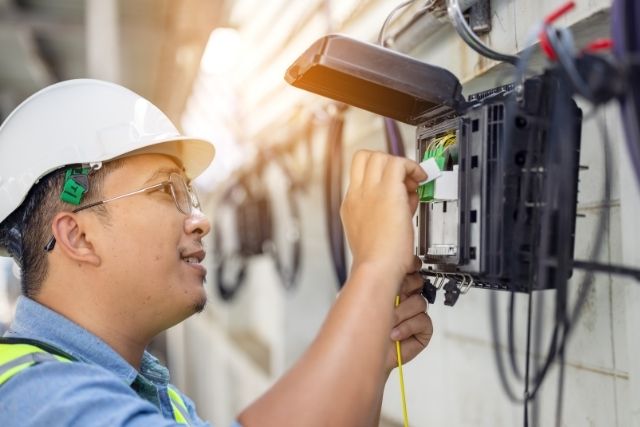
Who Should Take This Exam?
This certification is ideal for:
- Fiber optic installers and technicians.
- Network and cabling professionals working with fiber optics.
- IT and telecommunications professionals responsible for fiber optic networks.
- Individuals seeking a globally recognized fiber optic certification.
What Career Opportunities Await?
Certified professionals will be qualified for roles such as:
- Fiber Optic Technician
- Fiber Optic Installer
- FTTH (Fiber to the Home) Technician
- Network Cabling Specialist
- Fiber Optic Maintenance Engineer
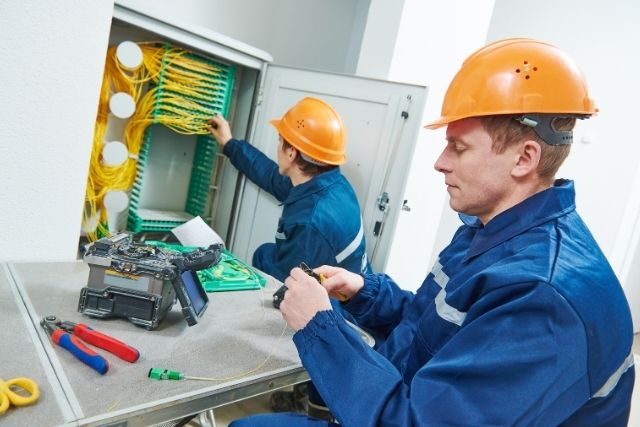
Everything You Need to Know About the Exam
Get familiar with the structure, duration, format, and requirements of the exam to help you prepare with confidence.
Exam Code
FT-301
Number of Questions
Maximum 60 questions
Question Types
Multiple Choice
Exam Duration
60 minutes
Passing Score
70%
Exam Delivery
Online or Test Center
Language
English, Bahasa Indonesia
Recommended Experience
6–12 months of experience in computer networking
Certification Validity
3 years (renewal required)
What You’ll Be Tested On
Understand the key knowledge areas and skills covered in the exam.
| Domain | Percentage |
|---|---|
| Fiber Optic Theory and Transmission | 20% |
| Fiber Optic Components and Standards | 20% |
| Fiber Optic Installation and Handling | 20% |
| Fiber Optic Testing and Troubleshooting | 20% |
| Fiber Optic Safety and Best Practices | 20% |
Begin Your Journey as a Fiber Optics Technician
Take the first step toward a specialized career in fiber optic technology with the NetCampus Certified Fiber Optics Technician certification.
What You’ll Get:
- Access to the FT-301 official certification exam
- Digital certificate upon passing
- Recognition as a certified Fiber Optics Technician
- Optional access to preparatory training (online or offline)
How to Register:
- Step 1: Choose Certified Fiber Optics Technician (FT-301)
- Step 2: Select your exam schedule (online or at a test center)
- Step 3: Complete the registration and payment process
- Step 4: Receive confirmation and exam access instructions
How to Maintain Your Certification
To maintain the NetCampus Certified Fiber Optics Technician credential, certified individuals must recertify every three (3) years by meeting one of the following requirements:
Option 1: Pass a Recertification Exam or Equivalent Track
Candidates must either:
- Pass the latest version of the NetCampus Certified Fiber Optics Technician exam before their certification expires, or
- Pass an exam from the NetCampus IT Infrastructure certification track that is at the same level or higher.
This option ensures the certified individual demonstrates up-to-date competencies aligned with current technology and industry standards.
Option 2: Complete NetCampus-Approved Training
Certified individuals may renew their certification by successfully completing an official training course—either online or offline—conducted by NetCampus or its authorized partners within the 3-year certification cycle.

Prepare for Certification Success
Prepare with the right resources to ensure your success in the NetCampus Certified Fiber Optics Technician exam. Here’s how you can get ready:
Explore More in IT Infrastructure
Build a solid foundation in computer networking with a certification that validates your fundamental skills and concepts.
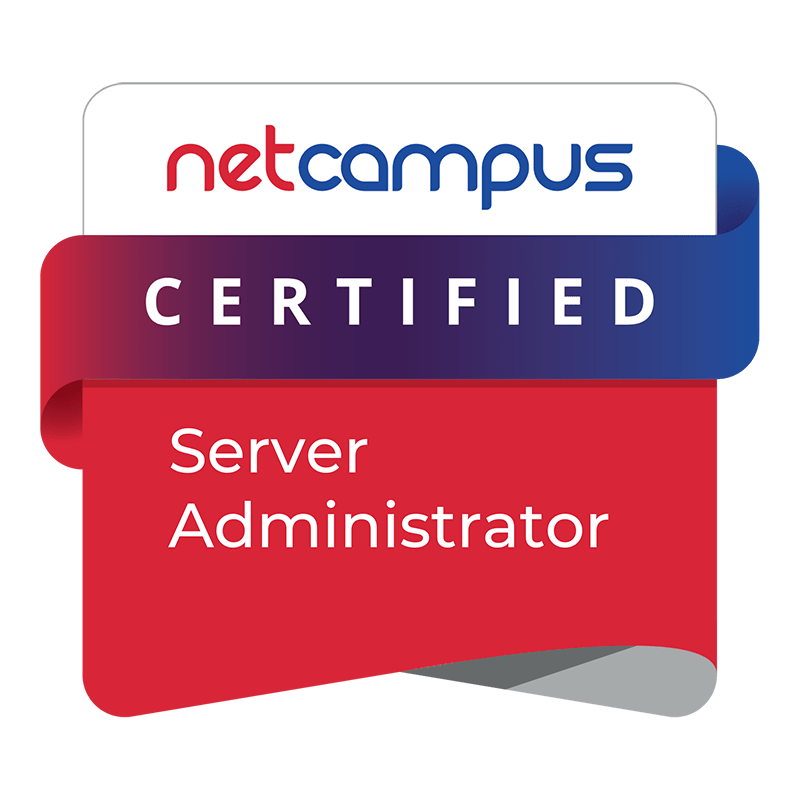
Server Administrator
Master the skills required to configure, manage, and maintain server environments in modern network infrastructures.

